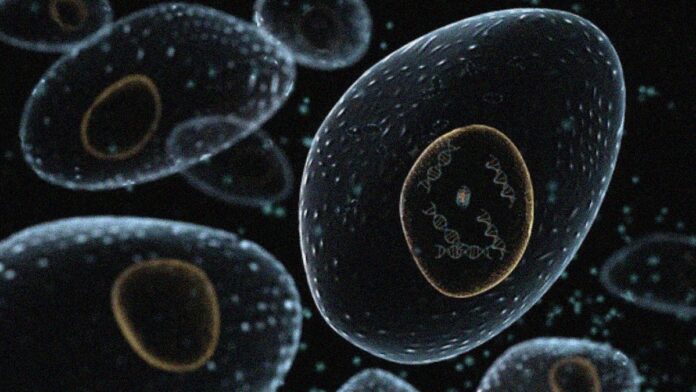The origin of life has been one of the most fascinating and debated topics in the scientific community for centuries. Although several theories have been proposed, the exact mechanism of how life began and originated on Earth remains a mystery. In this article, we will explore the different hypotheses, Spiritual Perspectives, and research findings related to the origin of life.
Contents
Hypotheses and Theories of The Origin of Life
Chemical Evolution Hypothesis
The chemical evolution hypothesis is one of the most widely accepted theories of the origin of life. According to this hypothesis, life on Earth began from the self-assembly of organic molecules in the primitive Earth environment, eventually leading to the formation of more complex organic compounds.
Stanley Miller and Harold Urey experimented in 1952 to test this hypothesis. They simulated the conditions of the early Earth’s atmosphere, containing gases such as methane, ammonia, water vapor, and hydrogen, and subjected them to electrical sparks. The experiment produced amino acids, which are the building blocks of proteins, suggesting that the primitive Earth’s conditions were conducive to the formation of organic molecules.
Panspermia Hypothesis
The panspermia hypothesis suggests that life on Earth originated from microorganisms or organic molecules that arrived from outer space via meteorites or comets. This theory proposes that life may have originated on other planets or moons with more favorable conditions for life, and then spread to Earth via these cosmic bodies.
Several experiments have provided evidence to support this hypothesis. In 2018, a team of researchers discovered organic matter on Mars, indicating the presence of potential building blocks of life. However, the panspermia hypothesis remains a topic of debate, as it raises questions about the survivability of microorganisms during their journey through space.
RNA World Hypothesis
The RNA World hypothesis proposes that RNA, rather than DNA, was the first self-replicating molecule that led to the formation of life on Earth. RNA is a molecule that can store genetic information and catalyze chemical reactions, making it a likely candidate for the first self-replicating molecule.
Several experiments have supported this hypothesis. In 2009, a team of researchers demonstrated that RNA could self-replicate under certain conditions. However, the RNA World hypothesis still raises questions about how RNA molecules first originated in the primitive Earth environment.
Hydrothermal Vent Hypothesis
The hydrothermal vent hypothesis proposes that life on Earth originated in underwater hydrothermal vents, where chemical reactions between seawater and volcanic rocks create a unique environment that is conducive to the formation of organic molecules.
Several studies have provided evidence to support this hypothesis. In 2019, a team of researchers discovered microbes living in hydrothermal vents that are genetically distinct from other life forms, suggesting that they may be remnants of the earliest life forms on Earth.
The Spiritual Perspective of the Origin of Life
Purusha and Prakriti
According to the Sankhya philosophy, Purusha (consciousness) and Prakriti (nature) are the two fundamental principles that constitute the universe. Purusha is the observer, while Prakriti is the observed. The interaction between these two principles led to the manifestation of the universe and all living beings.
Kundalini and Chakras
The Kundalini and Chakras are concepts related to the spiritual evolution of human beings. Kundalini refers to the dormant energy located at the base of the spine that can be awakened through spiritual practices. Chakras, on the other hand, are the seven energy centers in the human body that correspond to different aspects of human existence, such as physical, emotional, and spiritual.
Conclusion
The origin of life remains a mystery, and the exact mechanism of how it began and originated on Earth is still being debated in the scientific community. Different religions have their own beliefs and theories about the origin of life, and these beliefs have influenced the way people view the world and their place in it. While these beliefs may differ, they all offer a way to understand the mysteries of existence and the purpose of human life. Spiritual books offer various theories about the origin of life and the universe. These theories are based on the principles of consciousness, nature, and the ultimate reality. They also guide spiritual practices that can lead to the evolution of human consciousness and the attainment of ultimate liberation.
Although several theories and hypotheses have been proposed, none of them can fully explain how life originated. Further research is needed to uncover the exact processes and mechanisms that led to the formation of life on Earth. However, the ongoing efforts to understand the origin of life provide exciting prospects for scientific discoveries and advancements in the future.
Sources
- Szostak, J. (2018). How did life begin? Nature, 557(7704), S13-S15.
- Nash, J. M., & Bjerklie, D. (1993). How did life begin?. Time, 142(15), 68-74.
- Singh, T. D. (2005). Life and spiritual evolution. Kolkata, India: Bhaktivedanta Institute.
- Majumder, A. What is Life? Scientific and Indian Spiritual Perspectives on the Nature, Purpose, Meaning, and Origin of Life.(PDF)
FACT CHECK: We strive for accuracy and fairness. But if you see something that doesn’t look right, please Contact us.
DISCLOSURE: This Article may contain affiliate links and Sponsored ads, to know more please read our Privacy Policy.
Stay Updated: Follow our WhatsApp Channel and Telegram Channel.














